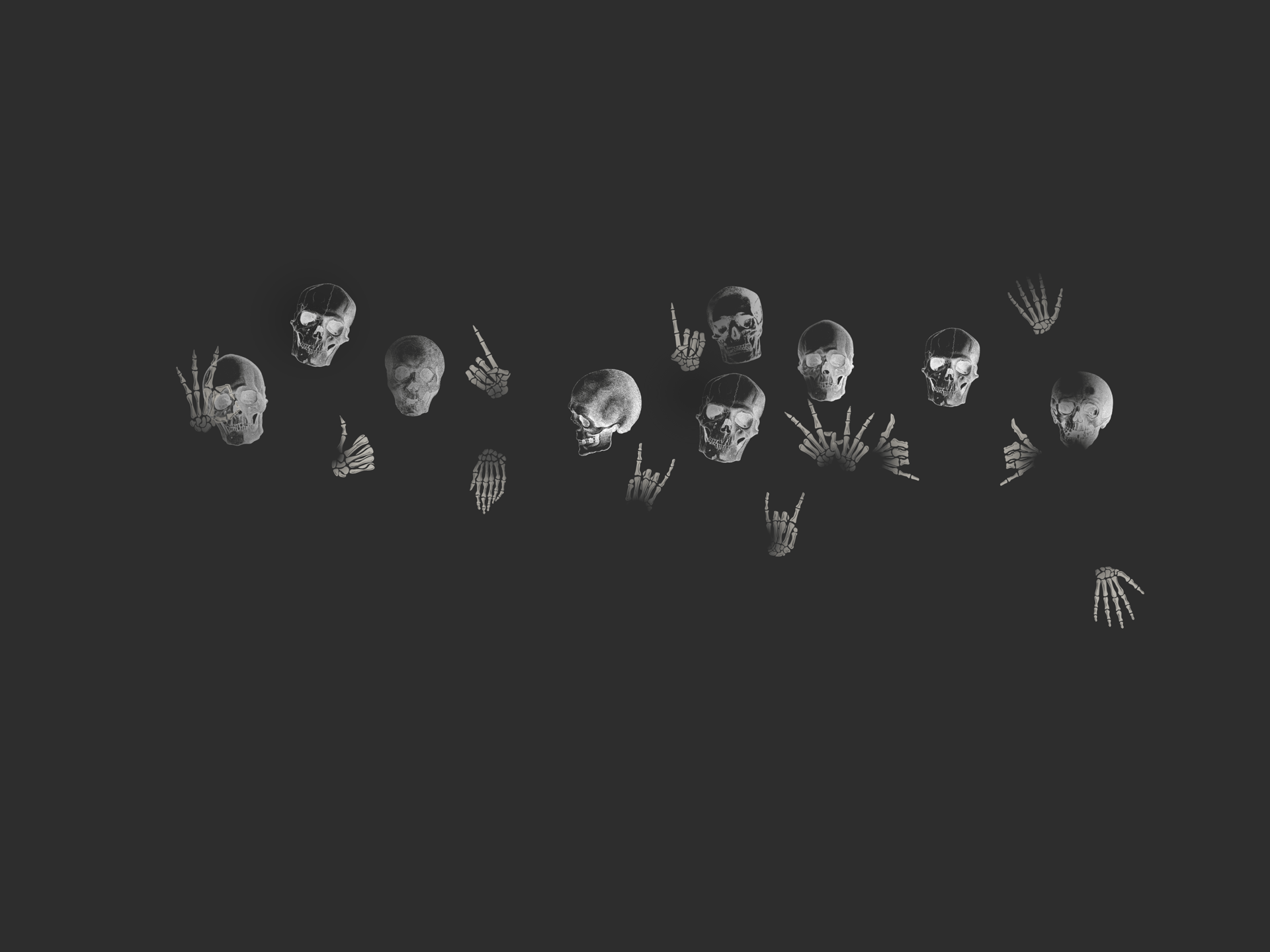
The Skeletons Are Out
It's time to spill the beans.

My husband has gone in and out of prison for drugs and other offences.
This has made our lives hell.
One we can't seem to get out of.

His first brush with the law plunged the family into crisis.
It sparked challenges that lasted beyond his prison sentence, persisting long after the punishment for his crime had ended.

A repeat of the cycle of events.
Before the challenges could get resolved, he reoffended.
It brought more challenges that didn't end after his release.
Then he reoffended again, followed with more challenges.
We've had no respite nor seen an end in sight.
What do you think comes next?
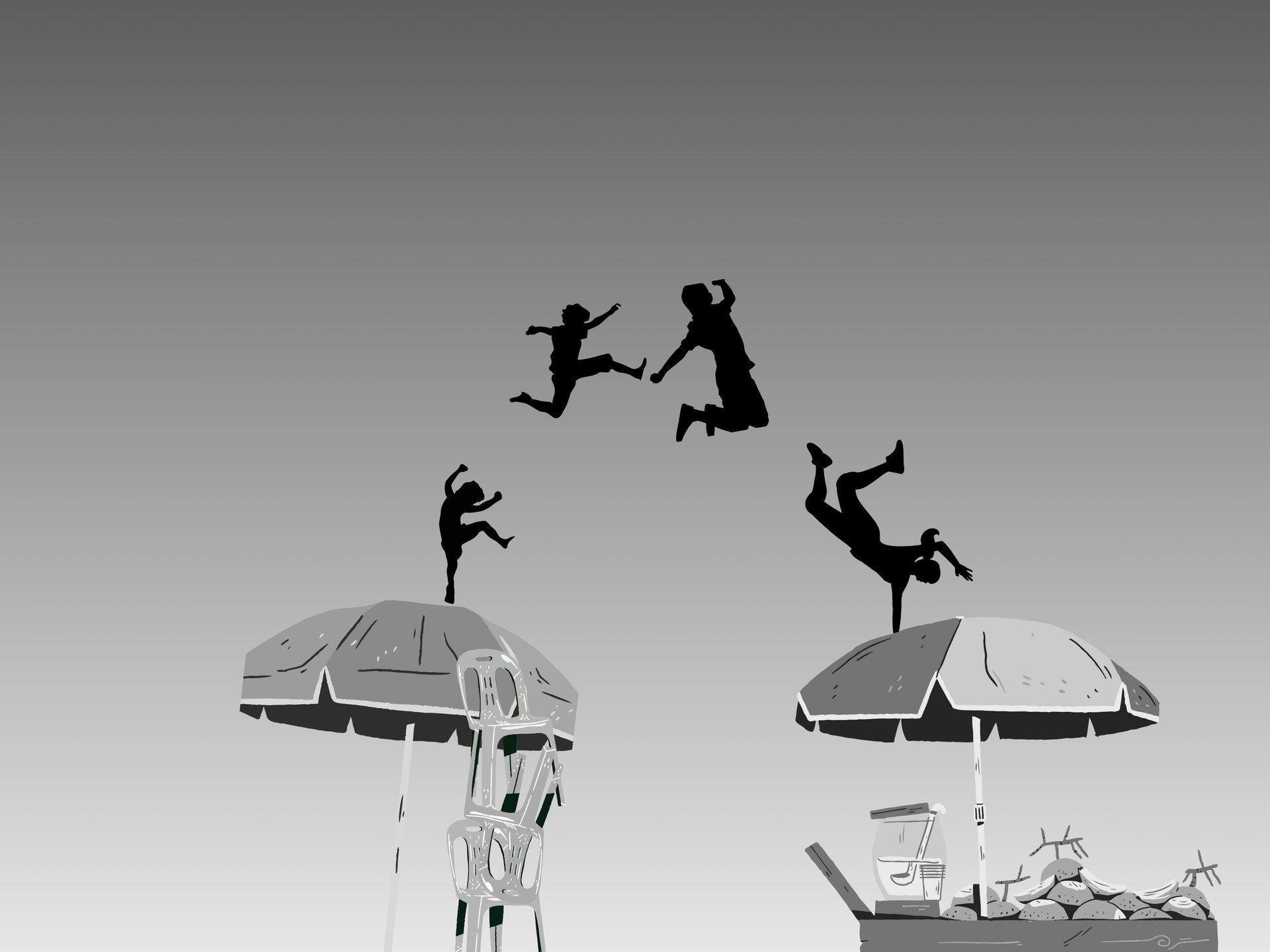
Each time he broke the law, things got harder and our lives got worse.
We've lost almost everything: our house, money, jobs, qualifications and reputation.
We're left with our mind, body and freedom.
Our children too.
We could soon lose them all.
Here's why.
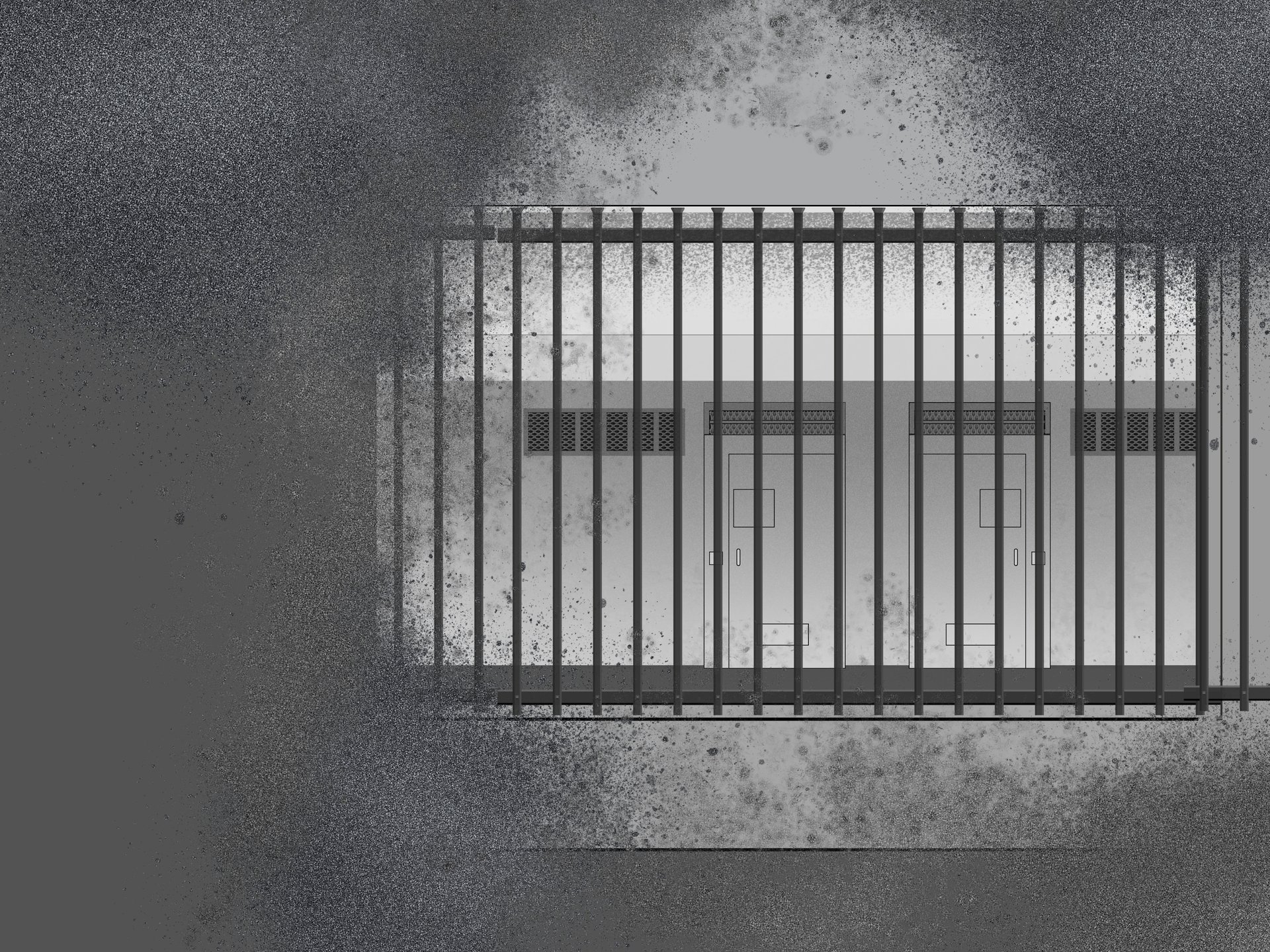
My husband's risk of reoffending goes up every year after his prison release.
By year 5, the risk is almost 50%. 1 in 2 prison releases reoffend.
Although our kids could beat him to it.
They are 5.18x more likely to offend than their peers and do so early in life.
With high reoffending and adult offending risks, going in and out of prison could become a lifelong affair for our kids.
Just as it has for their father.

Broken parent-child bonds cause behavioural challenges, susceptibility to gang memberships and early and risky sexual relationships.
Disrupted education affects academic prospects which translates to future career and economic disadvantage.
That's not all. Their hurdles are many.

Multiple physical illnesses could onset in youth, which portends many years in disability and shortened lifespans.
Early life adversity predicts major lifelong mental and physical health challenges.
Major depressive disorder, self-harm and suicide are constant threats.
With a future like that, what's there to look forward to?
The list goes on.


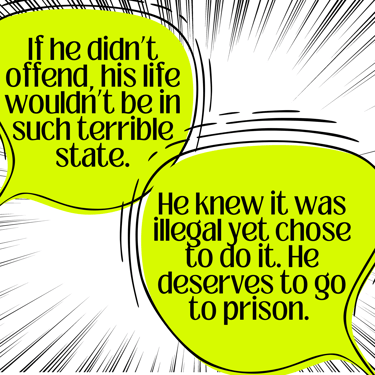

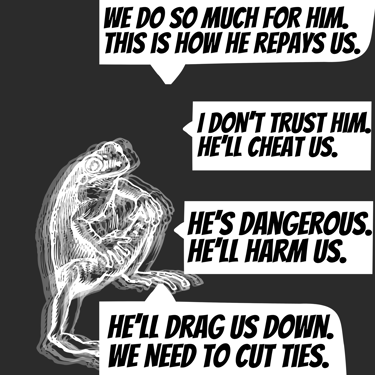
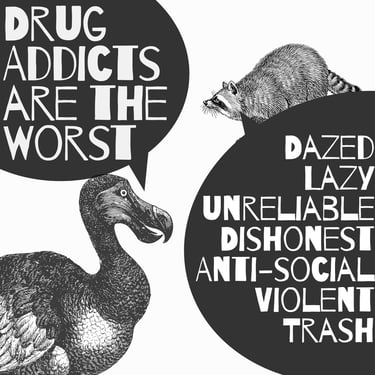
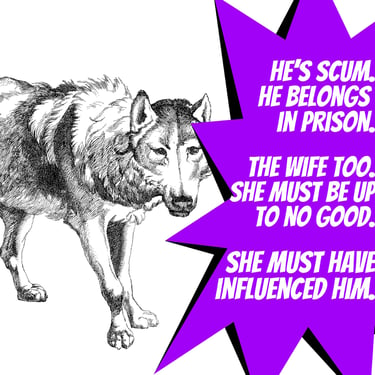
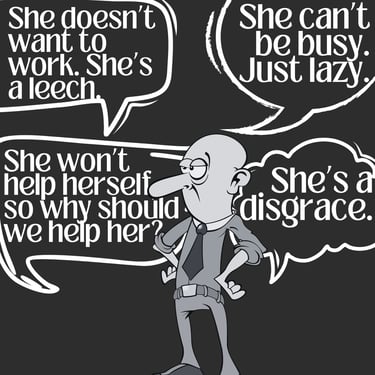
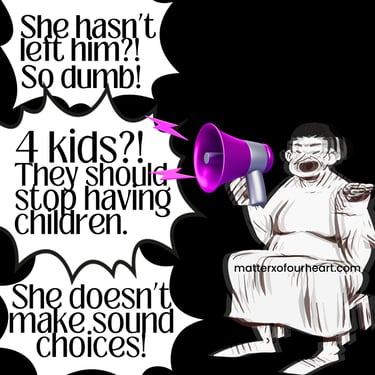

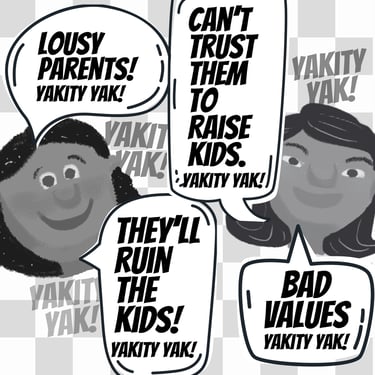
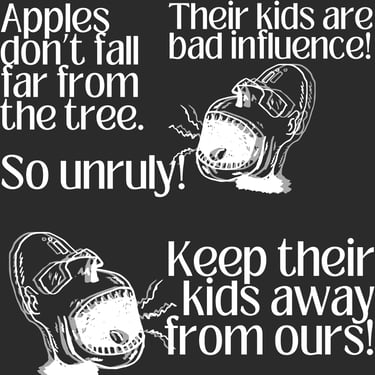
These are things people who know about my husband's repeat offending, say.
These people are acquaintances, ex-colleagues, family members and social workers.
Strong family support systems are linked to all states of wellbeing and positive life outcomes for the family members. As these systems inculcate civic-mindedness, their benefits extend beyond the home, thus creating strong communities and capable future leaders.
A supportive family is not just invaluable to the offender but beneficial to the order of society in its ability to directly impact crime prevention.
Conversely, weak family systems are not only unable to offer that support, they become the weight that pulls the members down. The numerous negative outcomes include criminality.
Family support is invaluable to the offender.
However, families of offenders have limited avenues of aid and reaching out to their own networks run risks of criticisms and ostracism.
These cause significant challenges to their offering of support and doing so comes at great expense to their own wellbeing.
Ex-offenders are further trapped within the cycle of reoffending and inter-generational offending plagues the family line.
MatterX Of Our Heart
supports the families of offenders to support their own, so as to break the cycle of reoffending and inter-generational offending.
The resources they can tap on are far and few, insufficient at addressing their needs. Reaching out to their own networks can backfire, drawing criticisms and ostracism instead, as well as additional challenges.
They experience forced separation and broken attachments, increased roles and responsibilities, disrupted education and employment, reduced opportunities, increased financial obligations and difficulties to name some, as well as the negative effects of these events.
As the legal process is often protracted, family members must endure these circumstances for prolonged durations, which causes significant mental, emotional, and physical distress.
Their kin's release from prison does not put an end to these events.
Returning to such a family situation upon release puts increased pressure on the kin, particularly where he will still have to be dependent on them for a long time.
It will take a adjustment to a vastly different world from that of prison and face many hurdles in a society that stigmatises ex-offenders. His reintegration journey is all the more challenging and dependence on the family is prolonged.
Family members find no relief in His ability to meaningfully contribute is constrained by a long period of adjusting to a vastly different world from that of prison and the many obstacles that ex-offenders face in a society that stigmatises them.
Supporting the kin compromises on the well-being of the family members, exposing them to all kinds of risk factors. Eventually the family unit falls apart and the members have to deal with the negative effects that can be serious and lifelong.
Family members are under immense pressure from the criminal proceedings and coping with the sudden and drastic changes brought upon them.
Supporting the kin compromises on the well-being of the family members, exposing them to all kinds of risk factors. Eventually the family unit falls apart and the members have to deal with the negative effects that can be serious and lifelong.
As the family strives to remain a pillar of support, it does not get the support it needs.
The end of the punishment revert the challenges nor effect a cessation. In cases where there are young children and he is a parent, while they may no longer be separated, the damage caused in his absence is not reversible. If they have hopes of his resuming roles and duties he previously had, they are bound to be disappointed. There is need for patience as adjustment back takes time and continuation of their support for him.
Their kin's release from prison offers little relief.
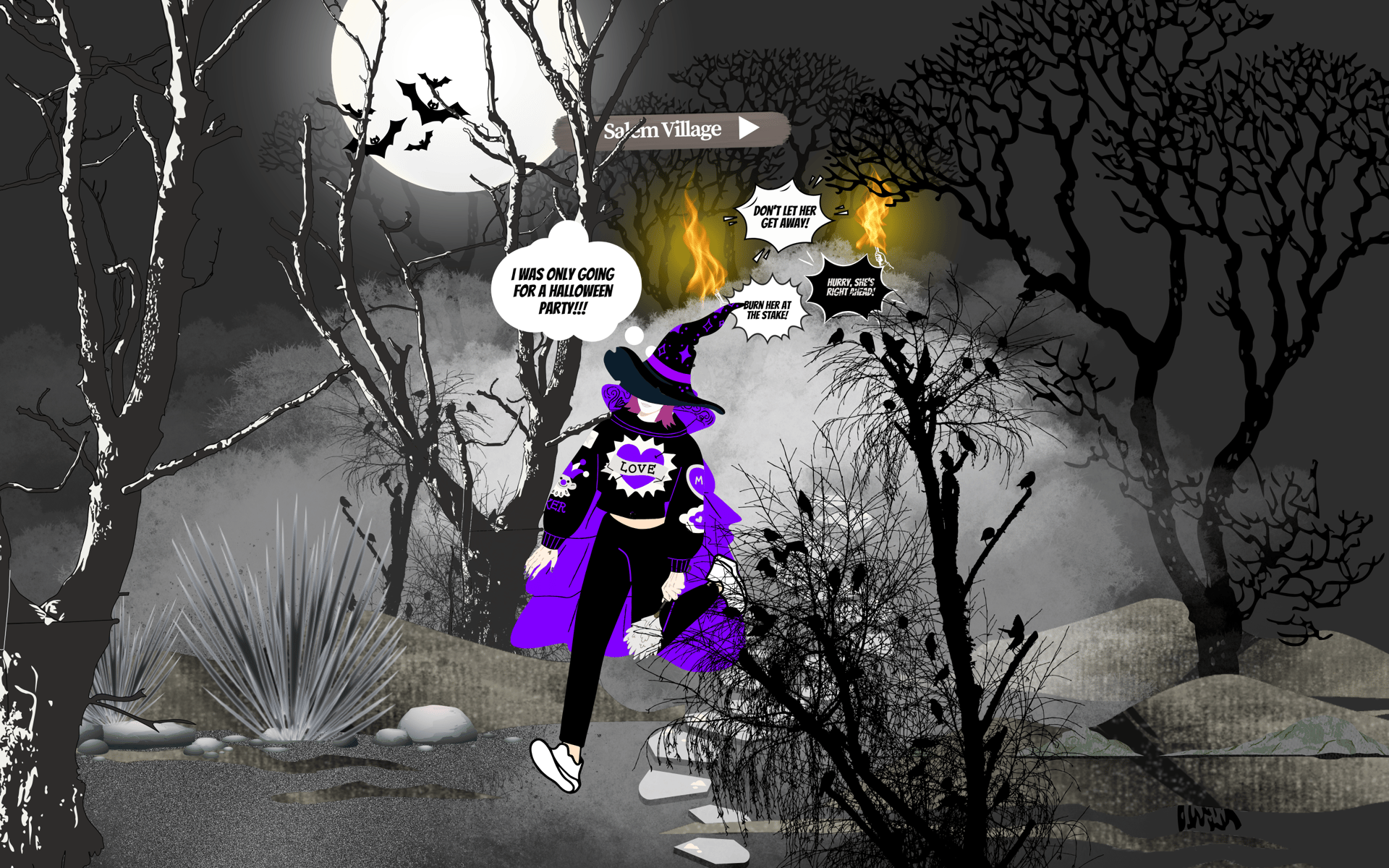
What's really causing these problems in our lives?
How did we lose our savings, jobs and house? Why does my husband keep using drugs knowing the consequences? Why did he offend in the first place? Why would he offend when it didn't fit his profile? Was he spoilt or rotten that discipline was useless?
Why do our children follow in his footsteps? Is there some kind of gene that compels our offspring to offend or dysfunctional 'values' that we transmit?
Why do people turn their backs on us? What could be so obnoxious about us that even some family are averse towards us? Why are we unable to break out of this rut?
Our experiences are not unique.
Society in general take offenders to be 'bad' as they go against the order of society, in contrast with victims who they relate to and view as 'good'.
What if I say that it's not really our fault?
As we tailor our attitudes and behaviours according to our beliefs and preferences, they go on to produce real, material and tangible impacts in the lives of those connected with it. This give rise to challenges arising in the lives of offenders, often times causing significant damage. The irony is people are contributing to the very events they criticise about offenders, including their future reoffending.
Families like mine are not uncommon. Every year nearly 10,000 families experience a kin's admission into prison. Almost half of these families will encounter the same family member entering prison again in the future.
With every five inmates who are parents, one will have a child who commits an offence. The more family members involved in crime, the more likelihood for criminal offending to go down the generational line.
The stereotype of criminal offenders comes from a repeated narrative that has been promoted since time immemorial and affixed deeply into the minds of people.
With every 5 inmates who are parents, 1 will have a child who commits an offence. The more family members involved in crime, the more likelihood for criminal offending to go down the generational line.
Every year nearly 10,000 families experience a kin's admission into prison.
Almost half of these families will encounter the same family member entering prison again before the 5th year of release.
Family members deemed guilty by association.
About 80% of prison inmates are repeat offenders.
Families of offenders pay the price when it's not their crime.
The offenders' contact with the criminal justice system brings serious trouble to the families. It begins from arrest stage and goes beyond the prison release sentence
The stigmatisation of offenders also extend to the family members who are deemed guilty by association.
As intergenerational criminality is a trend, public perception of these families tend to be negative.
What about offenders with no family history of criminality? What accounts for the deviation from the lineage pattern? As majority of youth offenders come from such backgrounds, what can we normal, families What are occurring in the households of youth offenders come from normal family backgrounds.
Why do kids from privilege backgrounds offend, as the numbers are showing an increase? Drug use has
These are the parents, spouses / partners, siblings and children.
When a person's life is affected, the lives of the family and closed ones are affected too.
Discrimination against the offender at home, ie. by family members can be more intense. Family members can be similar to members of the public who disapprove of the offending behaviour, Their association with an offender as a kin can bring about conflicting feelings of shame and resentment.
Those within the family who appear to be in support of the offender can experience discrimination too by these family members.
Matters Of Our Heart exists to set the record straight for offenders and their family members.
Every year nearly 10,000 families experience a family member's admission into prison. Almost half of these families will go through a similar experience again in their lives. With every 5 inmates who are parents, one will have a child who commits an offence, thus the cycle of offending continues to the next generation.
Statistics show the connections but not the causation. Why do ex-offenders return to prison, again and again? Why do the offspring of offenders follow in their footsteps? Is it simply a case of 'bad' genes that predispose them to criminal behaviours?
These drastic changes that affect the families have greater implications for society and deserve a serious look at. Through it, we may uncover problems that have stumped us for so long. Why do people traffic drugs knowing the heavy penalties? Why do youths consume drugs knowing the harms they cause? What is the basis of addiction?
This is a first-hand account, without the filters of competing interests and third party perspectives that have served as propaganda since time immemorial, and unfortunately instructed deterrence and rehabilitation methods.
1
The law concerns everyone. Even if you are a law-abiding citizen. The thing is, most people don't plan to commit a crime. Get equipped with necessary information to make informed decisions before it's too late.
Offenders and their families face overwhelming odds against the criminal justice system.
Family members often suffer in silence, for fear of disclosing their familial ties with an offender
Exorbitant criminal defence fees, exponentially higher for trials, can be financially crippling.
Families of offenders pay the price when it's not their crime.
A series of paradoxes
Families of offenders are shocked by the jarring event. The mental and emotional turmoil persist over a long period of time with considerable challenges to overcome.
Children suffer disrupted attachment when parents / caregivers are taken from them. Younger children are particularly vulnerable.
To add on, change of caregivers, possible housing displacement and in some cases, separation from co-borns is highly destabilising.
This is a form of abandonment trauma and has serious long term negative repercussions, including substance abuse which gets them involved with the criminal justice system.
Family members are in line for a series of shocks that begin with the police arrest. With parents
Criminal conviction leads to career dissolution and void of academic achievements, eroding past efforts and affect state of finances.
Police arrest and lock up.
Impacts family members who suffer financial lack including unmet needs.
Often, they are sought out to contribute to the legal fees which affects their financial state.
Period of financial difficulties is indefinite.
Imprisonment causes forced separation and broken attachment.
Loss of work and income affects financial state.
Cessation of household duties and responsibilities. Long periods of idleness and boredom.
Loss of freedom in almost all aspects results in reliance on family members to provide (because the prison system does not), which includes visitation and communication.
Families face loss of income contribution, further straining their finances.
Disruption in distribution and fulfilment of household duties. Family members take on duties of their incarcerated kin, including obtaining a source of income. The increase in burdens compromise their own duties which could be important academic and work responsibilities.
Again, children are the most vulnerable.
Minimal help options available. Financial aid is challenging to get and even if approved, amount is meagre. Their cluelessness causes retraumatisation.
Post release,
Traumatised, requires time to reintegrate into society and depends on family for support.
Cessation of contribution to household duties and responsibilities.
Prolonged separation to family members cause broken attachment.
Traumatised family members have to uplift ex-offender kin when they are in crisis too.
Family members fulfil requests, again piling onto their own duties,
Prison visitation occurs twice a month. For certain clusters, they are fixed on weekdays office hours, clashing with working and studying family members.
Family members rush to meet timing, predisposing them to accidents along the way. They face increase in transportation cost due to need for hired vehicles, which is concerning due to their financial state.
Financial Losses
Psycho-emotional Wear Down
Remand cause forced and extended separation.
Pre-Conviction
Sentence Ongoing.
Children with parents / caregivers in prison will encounter the debilitating effects mentioned at the remand stage.
Prison visitation is not just crucial for the kin's wellbeing but a show of family support that preferences them for the offender's early release.
Children with parents / caregivers in remand and prison suffer disrupted attachments that have lifelong negative impacts.
With greatly restricted communication between inmates and family members, achieving family cohesion is a struggle.
Marital relationships are strained, leaving the spouse of the offender feeling unsupported, left to managing the family on his/her own.
Much harm is done when children have their parents imprisoned, even worse when they are the main caregivers. They experience abandonment trauma with serious lifelong consequences.
Families of offenders suffer from financial lack that grows as time progresses.
They assume more financial responsibility for the family's needs such as paying legal fees for the offender and acquiring an income. This goes on indefinitely.
However, financially sustaining the family is greatly undermined when fulfilling the obligations pertaining to inmate's wellbeing and the increased burdens with the major load of responsibilities resting on them.
Yet support for these families is abysmal. Hardly are programs implemented to address the needs of these families. In fact welfare agencies are almost scared to lend a hand.
The lack of resources and understanding regarding the unique needs of these families often exacerbate their situation, leading to feelings of isolation and helplessness.
There are 3 stages in the trajectory of an offender. All 3 stages deplete the offender financially; criminal defence expenditure in the pre-trial stage, loss of income in the imprisonment stage and stagnant, low income in the post-release stage.
3 Stages in trajectory of an offender.
Criminal punishment
Families of offenders pay the price when it's not their crime.
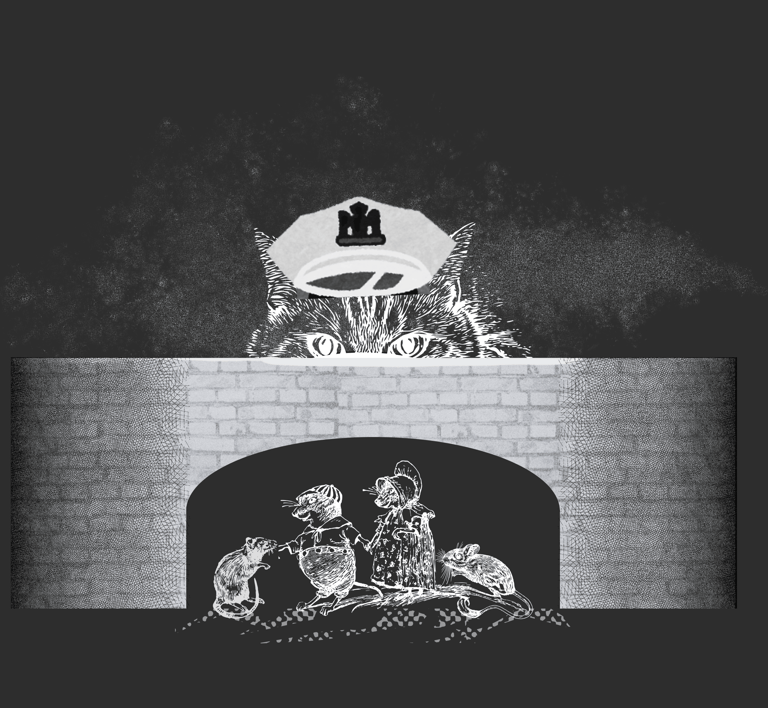

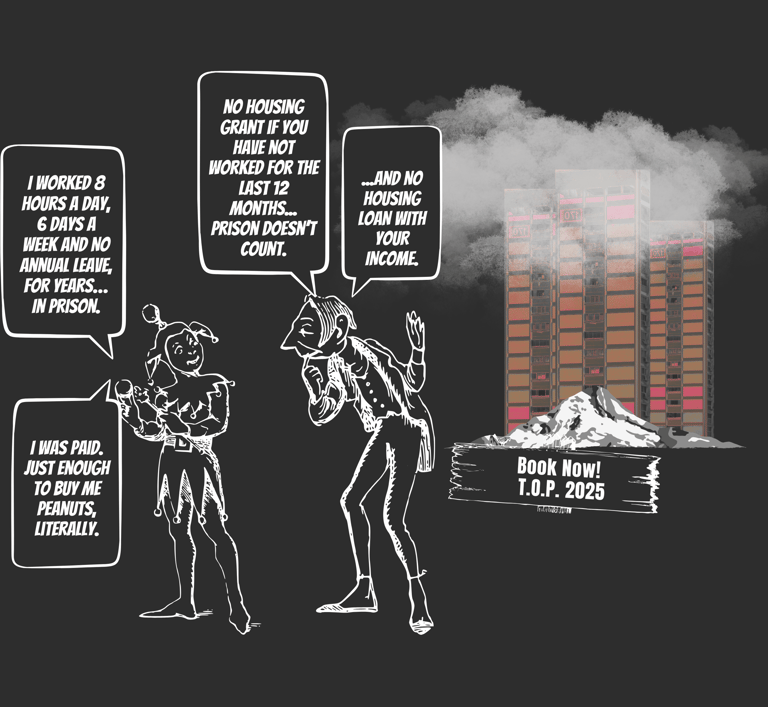

Relationships are impaired yet offenders rely on the kin for lodging. Living in such conditions breed the conditions of return to drug use.
Emotional losses
Financial Dissolution
Excess workload
They experience family upheavals, forced separation, and broken ties. For children, loss of parents / caregivers results in abandonment trauma, disrupting normal development.
The loss of a contributing family member to police remand or a prison term disturbs the distribution of duties in the household, carry serious implications for the family.
Fulfilling prison obligations add onto the workload.
Criminal defence expenditure, loss of income when in prison, receiving a low pay grade that normally accompanies a criminal record, are some ways that can lead a family to financial dissolution.
To be continued...
Yet they can impact our material reality significantly.
Widespread prejudice against offenders is particularly debilitating, engendering stigmatising treatment towards offenders in many areas of their lives. This can undermine their ability to lead a normal life.


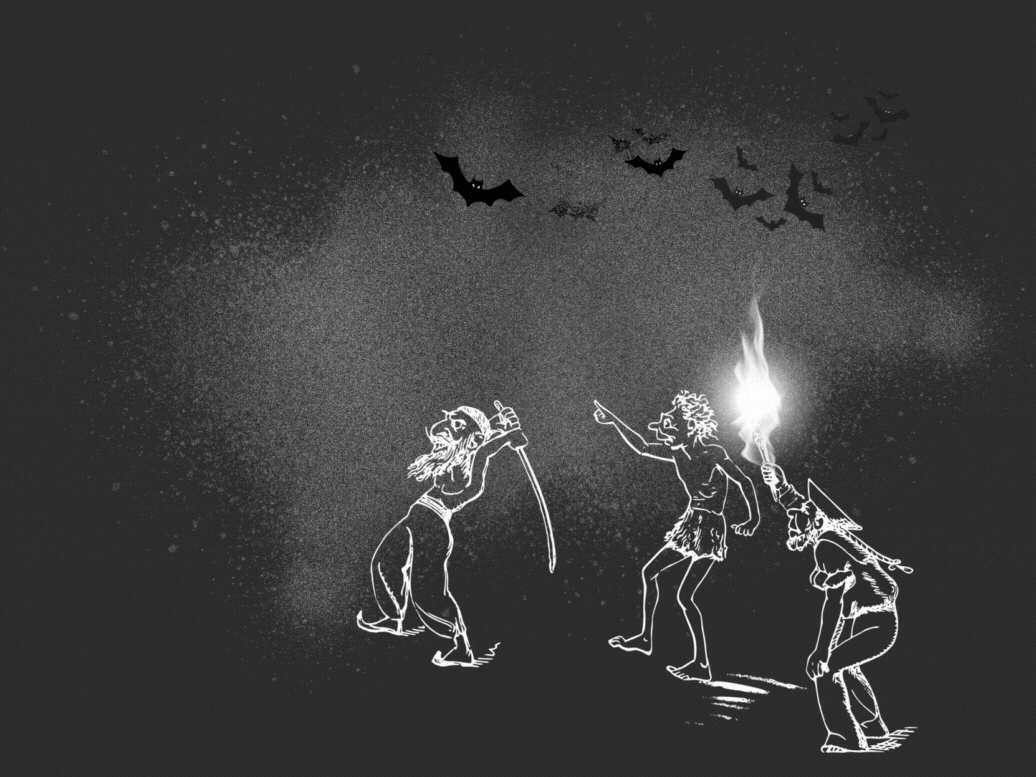

Families of offenders are stigmatised and affected in similar ways.
These opinions reflect prejudice against criminal offenders.
It has given rise to widespread stigmatising acts towards offenders, that affect multiple facets of their life.
Families of offenders are deemed guilty just by association. They suffer stigmatisation like their offender kin.
These families usually choose to conceal their identity.
There are family members who resent the offender whose familial ties have subjected them to stigmatisation from others.
They may act out in behave in stigmatising ways towards the offender.
Stigmatisation can be perpetrated by family members to the offender.
Not infrequently, offenders are stigmatised by their family.
Its occurrence is especially damaging as it not only reduces family's support paramount to rehabilitation, it causes challenges too and right in the home.
Opinions are not necessarily based on facts.
What we know about any given situation is mostly influenced by what we hear, see and how we feel about these.
The thing is, many things that we think we know, we actually don't. We get snippets of information, from people and sources that have gotten snippets of information from people and sources... and all of them including us, have our own personal takes on the received coloured and biased
Stigma creates challenges, blocks access to help and support for offenders and their families, contributing to their state.
This multiplies the damaging impacts as it disrupts home life and undermines family support paramount to rehabilitation.
Like a rolling snowball that gains mass over time, they become over-whelming and unmanageable.
Families of offenders are deemed guilty by association.
Death by public opinion.
But tales plucked from the sky don't make for facts.
Defence counsels work in the best interests of the client.
A better life begins with my husband's reforming his ways.
Or leaving him.
Admission of guilt equates to actual guilt.


Busting Myths
Criminal offenders are bad.
Prison rehabilitation works.
Family support is well, supportive.
The law is just.
Drug traffickers willingly traffic drugs.
Police are efficient and effective.
Drug abusers are lazy, unable to hold down a job and steal to support their drug habit.
Drug use is the cause of horrible crimes.
(Illegal) drugs take lives.
Prosecutors work in the interest of the public.
Court appointed legal representation is adequate and of good quality.
Prison reforms and rehabilitation is effective.
People who offend have contempt of the law.
Innocence will come to light.
Convictions are always rightful.
Families of offenders are deemed guilty by association.
So they resent the offending kin for the shame of their familial association.
When the law comes down on offenders, their families become collateral damage.
When the law comes down on offenders, their families become collateral damage.
Families of offenders pay the price when it's not their crime.
In the process of punishing the offenders, by stripping them their families are affected to a similar degree
The situation is complex and paradoxical.
Even their own families don't like them.
So they resent their offending kin for the many difficulties brought on by his brush with the law.
Families of offenders forced to offer support when they can't stay afloat.
So they resent their offending kin for the many difficulties brought on by his brush with the law.
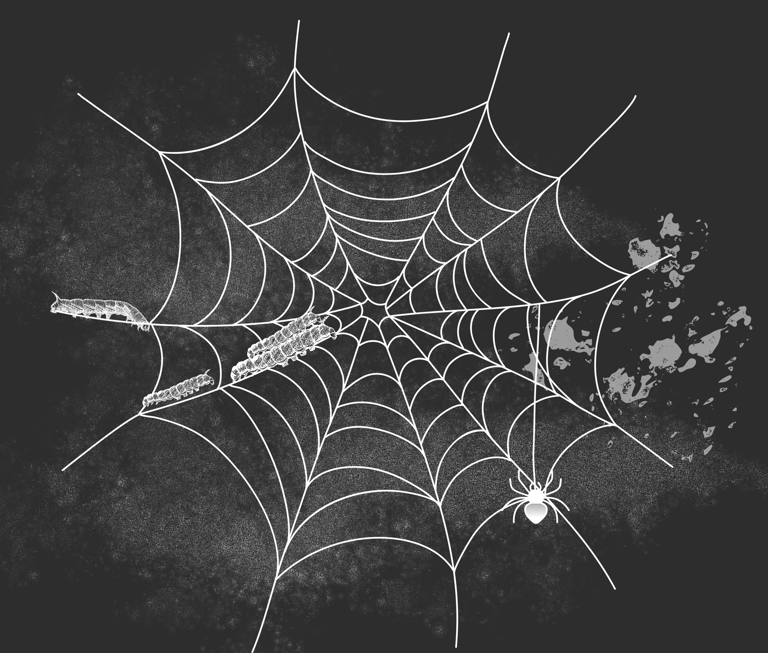

When employers and co-workers devalue and exploit offenders.
When rehabilitation services disregard them.